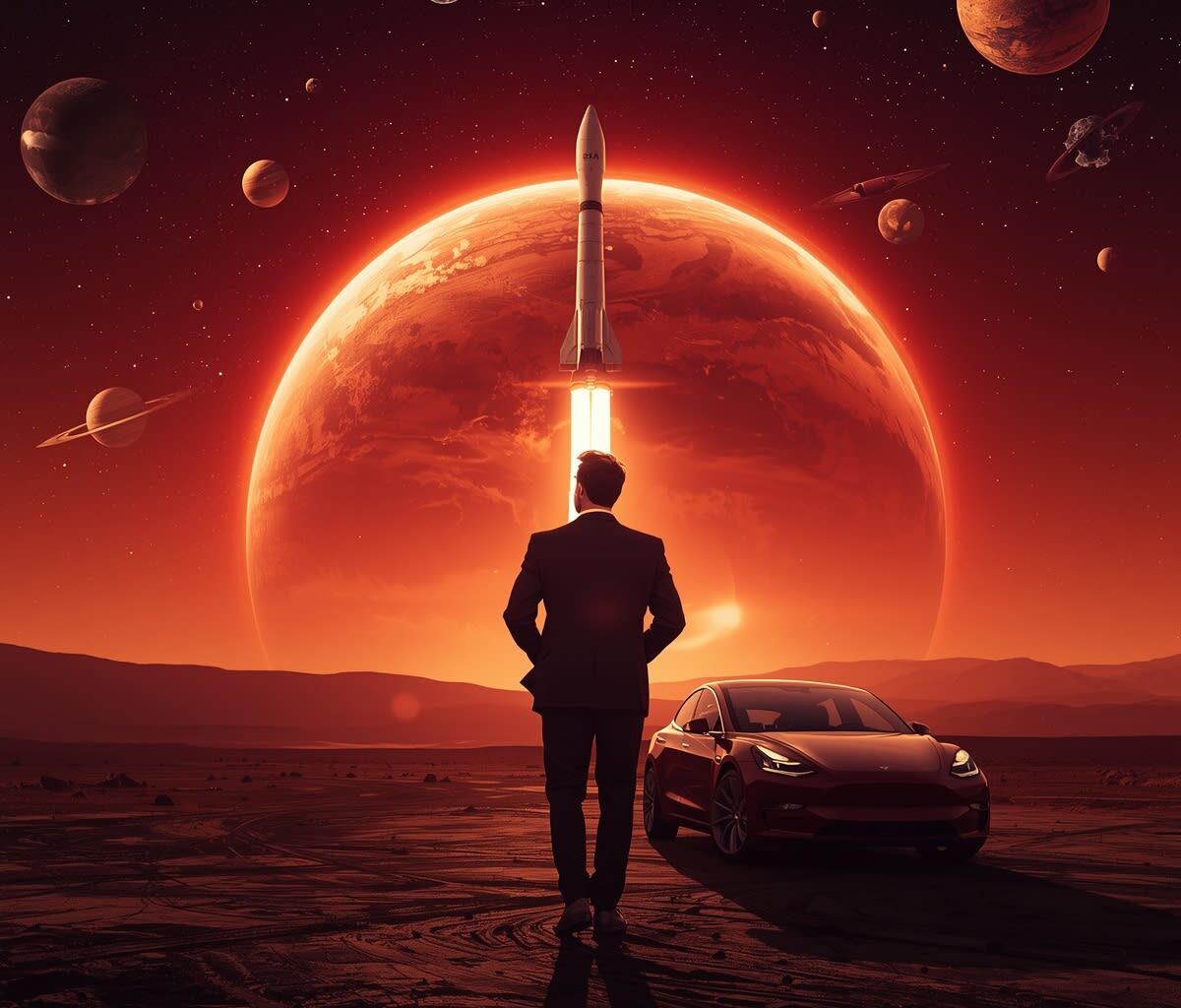From Startup Struggles to Space Conquest — The Rise of a Relentless Innovator
In a world where most people are content to dream small, Elon Musk was born to think beyond the stars. His story isn’t just about money or fame — it’s about a man who refused to accept limits, who stared failure in the face and built an empire that reshaped industries and redefined what humanity thought possible.
Born in Pretoria, South Africa, Elon wasn’t the type of child who fit in. While other kids played sports, he buried himself in books — science fiction, engineering manuals, and computer programming guides. At twelve, he built his first video game and sold it for $500. But even then, it wasn’t the money that thrilled him — it was creation, the act of bringing an idea to life.
By his twenties, Musk was restless. He saw opportunity in the digital revolution sweeping across the world. With barely a few hundred dollars, he landed in North America — a young immigrant with big dreams and no safety net. He rented small apartments, coded through sleepless nights, and lived off fast food while building his first company, Zip2, a business directory and mapping service.
Investors didn’t take him seriously at first — a young outsider with an accent and wild ideas about the future. But Elon had one trait that couldn’t be ignored: persistence. He worked relentlessly, slept in his office, and showered at the local YMCA. Years later, when Zip2 sold for $307 million, most would’ve celebrated and retired. Elon didn’t. To him, success was never an end — only a beginning.
Next came PayPal, his second big venture. Musk believed money transfer should be as simple as sending an email. The idea sounded crazy at the time, but he made it real. PayPal grew fast, changing online business forever. When eBay bought it for $1.5 billion, Elon walked away a multimillionaire. Again, people expected him to slow down — but his eyes were already looking upward, far beyond the Earth.
Elon Musk’s next chapter was the one that defined him — the one most people thought would destroy him.
He poured his fortune into SpaceX, a company whose mission sounded impossible: to make space travel affordable and, eventually, to make life multiplanetary. Engineers called him delusional. Experts mocked him. Governments had spent billions trying to do what he wanted to do with millions. But Musk believed that if humanity didn’t become a spacefaring species, it would eventually perish on Earth.
The early years were brutal. Rockets exploded. Investors panicked. SpaceX faced bankruptcy. Musk had to choose between saving SpaceX or Tesla — another company he’d founded to revolutionize electric cars. In one of the most difficult decisions of his life, he split his last remaining money between the two, risking everything.
And then, something incredible happened.
In 2008, SpaceX’s Falcon 1 became the first privately built rocket to reach orbit. The success came just days before the company would have gone bankrupt. NASA took notice — awarding SpaceX a $1.6 billion contract to deliver cargo to the International Space Station. Overnight, the company went from the brink of collapse to the frontlines of history.
Meanwhile, Tesla was rewriting the rules of the automotive industry. When the world said electric cars were boring, Musk made them fast, beautiful, and desirable. Critics predicted failure at every turn, but Elon’s obsession with perfection turned Tesla into a global powerhouse. Every setback — production delays, financial crises, public criticism — only seemed to make him stronger.
Behind every success, though, was relentless struggle. Musk slept on factory floors, working 100-hour weeks. He endured personal loss, media attacks, and countless failures. Yet through it all, he held onto one belief: if something is important enough, you do it even if the odds are against you.
That belief became the foundation of his empire — SpaceX, Tesla, SolarCity, Neuralink, and The Boring Company — all built on one principle: solving problems that matter to humanity.
By the 2020s, Elon Musk wasn’t just one of the richest men alive — he was a symbol of human ambition. SpaceX began launching astronauts to the International Space Station. Tesla led the electric vehicle revolution, forcing traditional automakers to rethink their future. And on the horizon stood Mars — the next great frontier.
When SpaceX unveiled the Starship — the fully reusable spacecraft designed to carry humans to Mars — Musk’s lifelong dream was finally within reach. The boy who once read science fiction under a dim lamp was now building the future those stories had only imagined.
Today, Elon Musk’s empire stands as a testament to what happens when courage outshines fear and vision overpowers doubt. His journey from a small apartment in South Africa to commanding rockets that touch the edge of space proves one thing: success isn’t about luck, it’s about refusing to quit.
Musk’s story reminds entrepreneurs everywhere that the road to greatness is never smooth — it’s filled with failure, frustration, and long nights of uncertainty. But it also teaches that every great idea begins as a dream that seems impossible, until someone like Elon Musk decides to make it real.
From zero to Mars, from an immigrant dreamer to one of the most influential figures of our time — Elon Musk’s story is not just about building companies. It’s about building the future.
